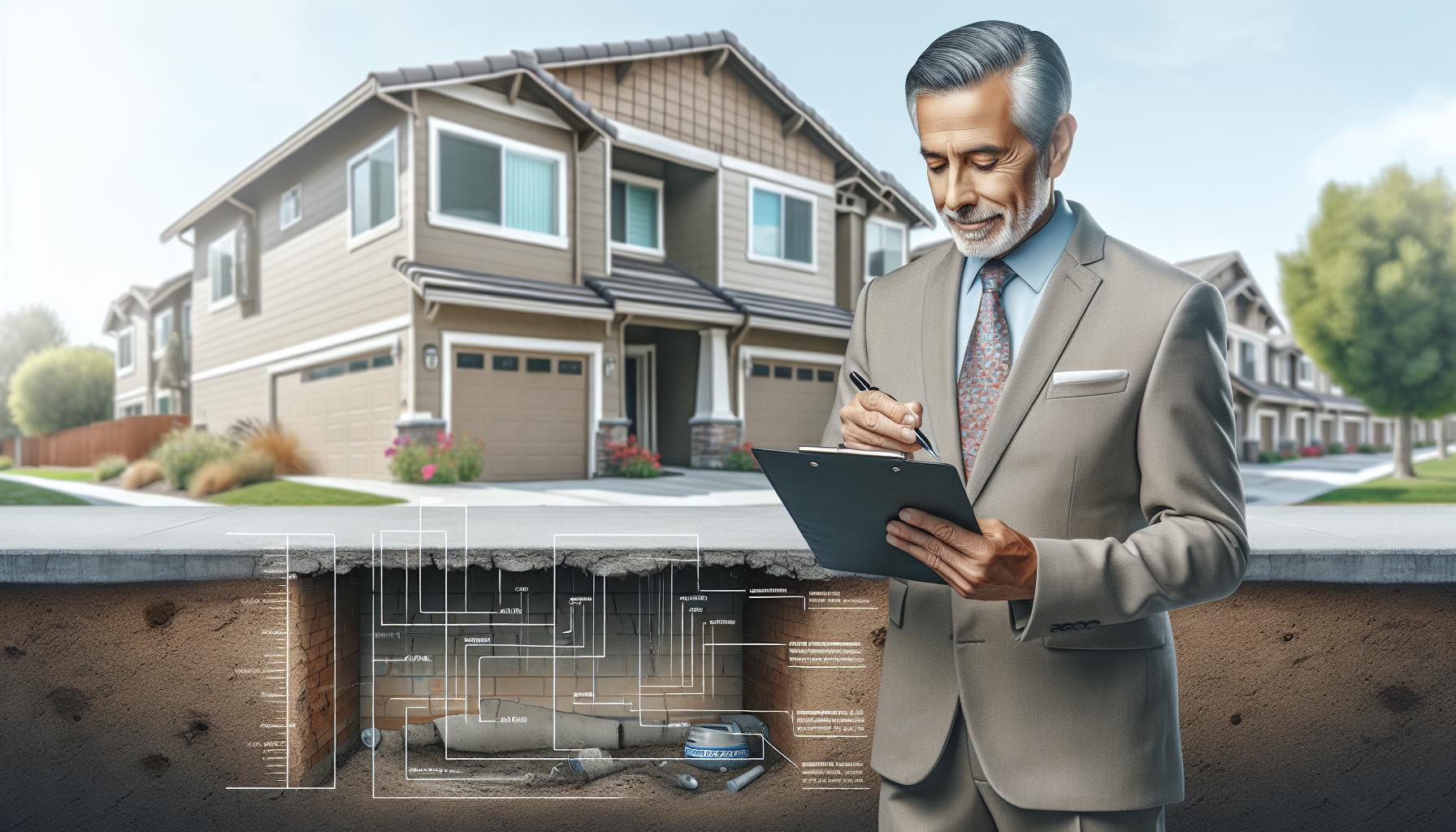Key Takeaways
- Rental property audits in Pleasanton evaluate the performance, compliance, and condition of properties, providing valuable insights for improvement and efficiency.
- Key benefits of audits include ensuring legal compliance, identifying maintenance issues early, and enhancing tenant satisfaction by fostering safer and better-maintained living environments.
- Audits involve examining key elements like financial records, lease agreements, maintenance logs, and structural inspections to protect investments and support profitability.
- Challenges in Pleasanton rental property audits often include navigating local regulations and balancing the time and resources required for thorough evaluations.
- Collaborating with professionals and using detailed checklists can streamline the audit process and ensure no critical areas are overlooked.
- Regular audits help property owners stay proactive, minimizing risks, improving tenant relationships, and maximizing returns on their investment.
Owning rental property in Pleasanton can be both rewarding and challenging. With so many details to manage, it’s easy to feel overwhelmed trying to keep everything in order. Have you ever wondered if your property is truly operating at its full potential or if there are areas where you could improve efficiency and compliance?
I understand how important it is to protect your investment while providing a great experience for your tenants. Rental property audits offer a clear picture of how your property is performing and help identify areas that need attention. Whether it’s reviewing financial records or ensuring maintenance needs are met, these audits can bring peace of mind and confidence to property owners like you.
What Are Pleasanton Rental Property Audits?
Pleasanton rental property audits assess the overall condition and performance of a rental property. They involve reviewing financial records, inspecting physical aspects of the property, and examining compliance with local regulations. These audits help identify potential risks or inefficiencies that could affect profitability or tenant satisfaction.
Audits typically evaluate maintenance schedules, lease agreements, and documentation such as permits or licenses. By analyzing these elements, property owners can pinpoint areas requiring attention, from overdue repairs to discrepancies in rental agreements. This process minimizes oversight and helps maintain smooth operations.
Financial assessments form a key part of these audits. They compare rental income with operational expenses, assess cash flow stability, and highlight opportunities to reduce unnecessary costs. These evaluations help property owners make informed financial decisions while staying compliant with reporting standards.
Property inspections focus on structural integrity, safety features, and overall habitability. Audits often include checking for hazards, wear and tear, and code violations. When safety or quality issues are found, prompt solutions protect tenants and preserve property value.
How frequently do you evaluate your rental property’s performance? Regular audits can provide clarity. They create opportunities to spot potential problems early, helping property owners stay proactive rather than reactive in their management strategy.
Benefits Of Conducting Rental Property Audits

Rental property audits provide critical insights that support better management and decision-making. These assessments contribute to maintaining profitability while protecting both the property and tenants.
Ensuring Legal Compliance
Audits verify adherence to local housing regulations and lease requirements. They review documents like rental agreements, tenant records, and licensing paperwork to confirm accuracy and alignment with current laws. This process reduces the risk of fines or legal disputes. Are you confident that your property complies with all applicable standards?
Identifying Maintenance Issues
Regular inspections during audits highlight both visible and hidden repair needs. From faulty wiring to plumbing leaks, these problems can escalate over time. Identifying them early minimizes damage and reduces costly repairs. When was the last time you reviewed your property’s physical condition in detail?
Enhancing Tenant Satisfaction
Audits improve living conditions by fostering a safer, well-maintained environment. Tenants are more likely to renew leases or recommend properties with consistent upkeep. Addressing feedback discovered through audits also strengthens tenant relationships. Would your tenants describe their experience as positive and hassle-free?
Key Components Of A Rental Property Audit

A thorough rental property audit examines various aspects to improve performance and protect investments. Each component plays a vital role in identifying issues and opportunities for improvement.
Structural Inspections
Physical inspections evaluate the property’s condition, focusing on safety and durability. I check for foundation cracks, roof damage, and issues with walls or ceilings. Are there any hazards like loose railings or broken stairs? I also verify that emergency systems such as smoke detectors and fire extinguishers function correctly. Addressing these issues promptly helps maintain tenant safety and avoid costly repairs later.
Utility Evaluations
Utilities contribute significantly to operating expenses and tenant satisfaction. I review the performance of essential systems, including plumbing, electrical wiring, and HVAC units. Is the water pressure stable? Are there any unexplained spikes in utility bills indicating leaks or inefficiencies? These evaluations help uncover problems that may increase costs or inconvenience tenants. Regular system checks also minimize disruptions and improve the property’s reliability.
Lease Agreement Review
Lease agreements determine legal compliance and set expectations for both landlords and tenants. I examine whether leases align with local regulations and include necessary clauses. Do they clearly outline responsibilities for repairs and maintenance? Are rent payment terms defined? Reviewing agreements prevents misunderstandings, reduces legal risks, and fosters stronger tenant relationships.
Common Challenges In Pleasanton Rental Property Audits

Rental property audits in Pleasanton can uncover several challenges that, if addressed early, can save time, money, and unnecessary stress. What are some frequent hurdles property owners face during these evaluations?
Navigating Local Regulations
Compliance with Pleasanton’s housing regulations often poses difficulties. City-specific rules govern areas like tenant rights, safety codes, and zoning restrictions. Missteps in understanding or applying these regulations can lead to penalties or legal disputes. Identifying which local laws apply to your property takes research and careful review. Have you checked your lease agreements, property licenses, and tenant notices for compliance gaps?
Local ordinances might also require regular inspections or reporting. Staying informed about these requirements reduces oversight risks. Hiring a property manager or legal advisor strengthens your ability to meet legal obligations without omissions.
Managing Time And Resources
Conducting thorough audits demands significant time and effort, especially for owners managing multiple properties. Reviewing financial statements, inspecting each unit, and coordinating maintenance schedules can become overwhelming while juggling other responsibilities. Do you allocate specific days to focus on property evaluations, or does it rely on last-minute preparation?
Balancing costs is another challenge. Scheduling inspections, repairing deficiencies, and updating records can strain budgets. Creating a checklist for each audit phase simplifies the process and helps prioritize action items. Online tools and local contractors can further streamline these responsibilities, making them less time-consuming and more cost-effective.
Tips For Effective Pleasanton Rental Property Audits

Effective rental property audits in Pleasanton require careful planning and execution. Focusing on key strategies can make the process smoother and more productive.
Collaborate With Professionals
Engaging professionals can add value to your rental property audits. Property managers, accountants, and legal advisors offer expertise in specialized areas. For instance, accountants can analyze financial records for income and expense accuracy, while legal advisors can review lease agreements for compliance with Pleasanton regulations. Inspectors provide a thorough assessment of the property’s structural and safety conditions. Involving professionals reduces errors and saves time, especially for owners managing multiple properties. Who could help streamline your audit process?
Create A Detailed Checklist
A comprehensive checklist helps cover all critical elements during audits. Include categories such as financial records, lease agreements, maintenance logs, and safety checks. Break down tasks within each category. For example, under maintenance logs, list items like HVAC servicing and roof condition. Address regularly neglected areas, such as smoke detectors and plumbing fixtures. A checklist reduces the chance of overlooking key details, helping you stay organized and focused. What categories would you prioritize for your property?
Conclusion
Owning rental property in Pleasanton comes with its share of challenges, but regular audits can make a world of difference. They’re an essential tool for identifying risks, improving efficiency, and ensuring compliance with local regulations. By staying proactive and organized, property owners can protect their investments, enhance tenant satisfaction, and maintain smooth operations. Whether you manage a single property or an entire portfolio, audits are a smart way to stay ahead and make informed decisions.
Frequently Asked Questions
What is a rental property audit?
A rental property audit is a systematic evaluation of a property’s financial, physical, and compliance aspects. It involves reviewing financial records, inspecting the property for safety and maintenance issues, and ensuring adherence to local regulations. The goal is to identify inefficiencies, risks, or areas for improvement.
Why are rental property audits important in Pleasanton?
Rental property audits are crucial in Pleasanton to ensure compliance with local housing regulations, maintain property value, and enhance tenant satisfaction. They help identify issues early, reduce legal risks, and support better overall property management.
What are the key components of a rental property audit?
The key components include:
- Financial assessments (income vs. expenses)
- Structural inspections (safety and integrity)
- Lease agreement reviews (compliance and clarity)
- Utility evaluations (efficiency and functionality)
- Maintenance schedule checks
How often should I conduct a rental property audit?
It’s recommended to conduct rental property audits annually or whenever there are significant changes, such as new tenants, modifications to the property, or updates to local regulations. Regular audits ensure smooth operations and proactive management.
How can a rental property audit improve tenant satisfaction?
Audits enhance tenant satisfaction by ensuring the property is safe, well-maintained, and compliant with regulations. Addressing maintenance issues promptly and fostering a comfortable environment can lead to higher tenant retention and positive relationships.
What challenges might I face during a rental property audit?
Common challenges include navigating Pleasanton’s local regulations, managing the time investment for thorough evaluations, and accessing expertise in areas like legal compliance and financial management. Using checklists and hiring professionals can help overcome these hurdles.
Can I conduct a rental property audit on my own?
While you can conduct an audit independently, hiring professionals like property managers, accountants, or legal advisors is highly recommended. They provide expertise that can ensure a thorough audit, reduce errors, and save time.
How do I prepare for a rental property audit?
Start by gathering all relevant documents, such as financial records, lease agreements, and maintenance logs. Create a detailed checklist to cover all critical aspects, and consider collaborating with experts to review financials, inspect the property, and ensure compliance.
Are rental property audits legally required in Pleasanton?
While not legally required, rental property audits are strongly recommended. They help property owners ensure compliance with local housing regulations, which can prevent fines or legal disputes while protecting their investment.
What tools can help streamline the audit process?
Audit checklists, property management software, and online tools can make the process more efficient. These resources help track financial performance, schedule maintenance, monitor compliance, and organize essential details for a comprehensive audit.
